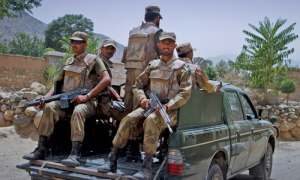PESHAWAR: In the face of conservative traditions and limited opportunities, the women of Khyber Pakhtunkhwa exhibit remarkable resilience as they strive to make their mark in diverse fields, breaking through barriers and establishing themselves as influential figures within their communities.
Fatima, a tenacious woman in her early thirties hailing from a small village in Swat dared to dream differently, despite societal constraints and entrenched gender roles dictating a woman’s sphere to be confined within the home. Her journey commenced with education, she defied social taboos and enrolled in a local school, determined to break the cycle of illiteracy plaguing her community for generations.
As Fatima immersed herself in learning, she discovered a passion for entrepreneurship. Equipped with newfound skills and knowledge, she embarked on a mission to empower fellow women by offering them economic opportunities. Together with a group of like-minded women, she established a cooperative focused on producing and selling traditional handicrafts.
Through their collective efforts, Fatima and her fellows transformed their modest homes into vibrant centers of creativity and commerce. From intricately embroidered textiles to meticulously crafted pottery, their products garnered acclaim in local markets, earning recognition for their craftsmanship and innovation.
Their voices echoed in village councils and public forums, advocating for gender equality, healthcare access, and protection against domestic violence.
Fatima’s narrative represents just one facet of the ongoing women’s empowerment movement unfolding across rural KP. From Swat to Dir, women are reclaiming their rightful roles as architects of their destinies.
They challenge conventions, reshape norms, and amplify their voices. Another inspiring example is Saima, a young woman from a remote Swat village who defied familial opposition to pursue higher education and become a teacher. Today, she operates a girls’ school in her village, offering a secure environment for learning and growth.
Saima’s school accommodates 250 students, with 120 girls and 130 boys, spanning Grades 1 through 10, with an average class size of 25 students.
Naila Kiran of DI Khan emphasized the need for the government to introduce skill-based education and create employment opportunities for women. She lamented the wastage of women’s exceptional skills in areas like embroidery, handicrafts, and pottery due to governmental neglect.
—APP
























